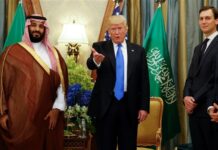Context
 Gen Mattis and Gen Allen arrived in Pakistan today to meet senior Pakistan military officials, including Gen Kiyani. PM Gilani and President Obama met in Seoul on Tuesday. After the Salala check post incident last November, Pakistan suspended NATO’s Afghan supply lines, initiated a policy review of its ties with the US, and demanded a formal apology.
Gen Mattis and Gen Allen arrived in Pakistan today to meet senior Pakistan military officials, including Gen Kiyani. PM Gilani and President Obama met in Seoul on Tuesday. After the Salala check post incident last November, Pakistan suspended NATO’s Afghan supply lines, initiated a policy review of its ties with the US, and demanded a formal apology.
These high-level meetings are taking place as the Afghan war has increasingly taken a turn for the worse and mistrust between Afghan Security Forces and NATO troops is on the increase. According to media reports on Tuesday, more than a dozen Afghan soldiers were arrested on allegations of plotting to attack the Afghan Defense Ministry, and 10 suicide jackets were found inside the heavily guarded ministry. The arrests of afghan soldiers have also raised fears of backlash from Afghan forces, following spike in attacks on Nato troops. The incident puts a question mark on the ability of afghan forces to take over security responsibilities after US withdrawal.
In the aftermath of the killing of 16 civilians by a US soldier in Panjwaii District, Taliban suspended the Doha peace talks. After the incident, Afghan President Hamid Karzai had informed the US Defense Secretary Leon Panetta that foreign troops should be pulled out of Afghanistan’s remote areas, and the transition process of security responsibilities should be completed by 2013, instead of 2014.
Highly controversial tactics of Night-time raids and drone strikes, conducted by US, have also bedeviled its relations with both Afghanistan and Pakistan.
No Change In US Strategy
Despite the setbacks, US officials have emphasized to continue the policy as is. Gen John Allen, Commander of NATO and US forces in Afghanistan recently stated that he has not decided yet on launching offensive in eastern Afghanistan. However, he said,
“We anticipate shifting resources to the east in any case because it remains there that the principal COIN (counterinsurgency) fight will ultimately be shaped in 2012.”
He also criticized Pakistan for allowing al-Qaeda to operate with impunity, and Iran, which he said fuels insurgency.
Speaking at the Brooking Institute in Washington DC on Marc 26, Gen Allen, stated that it is no surprise that ISI has links with the terror groups as they have historically had relations with them.
“So we shouldn’t be surprised they have a relationship with them, but I would not speculate on what specific operational support they have or whether they’re an action arm. I would just say that the relationship potentially is unhelpful in that regard,” Allen said.
He also commented that a number of preventive measures have been taken to avert the recurrence of Salala check post type incident. He added that several high-level meetings have been held among officials of ISAF, ANSF (Afghan National Security Forces) and Pakistan, to begin the process of restoring the border relationship.
Gen Allen emphasized on the potential for complementary operations to purge the area of safe havens and the terrorists. Depending on Pakistan’s parliamentary review, he commented; US and Pakistan can talk about combining capabilities for joint operations. He was probably sending a message to the Pakistan military, indicating flexibility on the joint use of drones.
Gilani, Obama Meeting
US President Barack Obama and Pakistan’s Prime Minister Raza Gilani also met in Seoul on Tuesday and vowed to salvage the troubled alliance.
Both leaders expressed the desire to bring the relationship back on track. Obama said, “But I welcome the fact that the parliament of Pakistan is reviewing, after some extensive study, the nature of this relationship.”
Obama and Gilani stressed on stabilizing and securing the situation in Afghanistan. Gilani said Pakistan is interested in a stable and secure Afghanistan and the region and is ready to work with the US.



